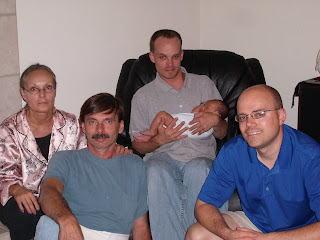

I received the call in the spring of 1998 from my mother Linda and I remember everything so vividly. I shut the door, sat down at the desk in my dorm room and listened carefully because something sounded different with mom this time.
The tone of mom’s voice kept me patiently waiting. Maybe a family member back in North Dakota was sick or had suddenly died, I thought.
“Brian,” she said, “My doctor has diagnosed me with Parkinson’s disease.”
Being a pre-nursing student at the time, I had heard of Parkinson’s, but I didn’t know much about it. I knew it involved the brain and I knew that Michael J. Fox had the disease, but that’s about it.
Mom was only 45 years old at the time. Medical literature told me that people aren’t typically diagnosed with Parkinson’s until their 60s.
Mom quickly joined a support group and was doing fine, she would tell me. She was good at taking her medications as ordered. The only thing I noticed when I went back home to visit was my mom’s gait disturbance, which is common in Parkinson’s. Typically, mom would shuffle her feet and take short steps, having to grab on to things if needed. I was relieved to see that mom didn’t develop any major tremors or battle with severe pain.
Time passed. I got into nursing school. I would keep up with mom over the phone and made sure I asked how she was getting along. Mom was strong, just like I thought she would be. She managed to keep working. Grandmother Nona always had good things to say about mom’s willpower and perseverance. I gave ample amount of credit to the medications mom was taking, because they seemed to be helping her. Mom had Parkinson’s, but it didn’t have her, I would tell myself.
In 2000, things changed with mom, and I wasn’t quite sure what was happening. Mom told me she was on the same medications. Her walking seemed to be more of a challenge. She was now dealing with tremors. The thing that worried me most, however, was my mom’s state of mind. She seemed to be depressed when I would talk with her. She just didn’t seem the same. I received letters throughout the year from her sisters claiming that mom was now asking the family for money to support a possible gambling addiction. “Mom is gambling? No way,” I thought. This is not the mom I know. Mom eventually asked me for money, too.
Mom, however, did admit that she had been gambling, but was getting help for it through Gamblers Anonymous (GA). Then the phone call from Aunt Kathy came in the fall of 2002. Kathy thought it would be a good idea for me to fly back home so I could see mom. She had reached an all-time low. Her debts were increasing. She had just been bailed out of jail.
It wasn’t until 2004 that David Tullar, PA, realized that mom had been experiencing one of the rare side effects of Mirapex, the drug she had been on for 6 years. Tullar discontinued the drug due to mom’s compulsive gambling. Mom stayed committed to her GA weekly meetings.
I have taken care of many patients with Parkinson’s disease in the hospital, many of whom take Mirapex. I may never know how the drug has affected or will affect them. But one thing is certain: since being taken off of Mirapex, mom has remained strong and no longer gambles.
The mom I know is back and that comforts me.
By Brian Brandser, RN, BSN, CCRN, CLNC
your mom is very good. nice post.
ReplyDeleteMARIA
Cash Online Get Easy cash at your door step